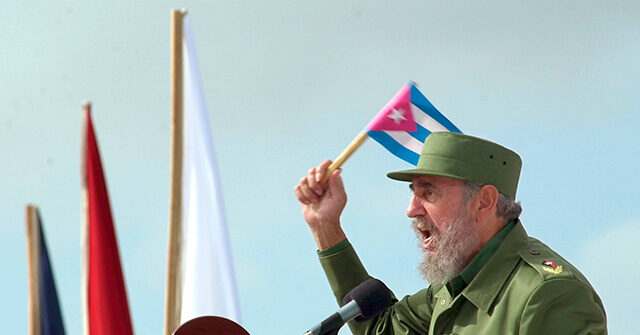Sandro Castro, the grandson of Fidel Castro, sparked widespread outrage with his announcement of a lavish birthday party planned for December 5 at his privately owned EFE Bar in Havana. This celebration has drawn the ire of many, both in Cuba and among the Cuban diaspora, largely due to the grim realities facing the country. As Cuba grapples with an unprecedented humanitarian crisis—marked by extreme poverty, hunger, and deteriorating public infrastructure—Sandro’s planned event appears emblematic of the stark disconnect between the ruling elite and the struggling populace. Fidel Castro’s legacy, intertwined with decades of strict communist policies, has led Cuba to a critical juncture, with many Cubans fleeing the nation in what has become the largest mass exodus in its history.
Defending his decision to celebrate, Sandro Castro publicly addressed the criticism through social media, proclaiming his right to party as a “Cuban revolutionary.” He insisted that there was nothing illegal about hosting such an event in his venue and invited dissenters to join him, framing the backlash as a product of misinformation propagated by critics, particularly those from the United States. Sandro attempted to dismiss the mounting outrage by underscoring that he was merely exercising the rights of a young Cuban man, and expressed the hope that the discussion surrounding his celebrations could pivot to a more unified tone among his compatriots during these challenging times.
The details of the party, portrayed as an extravagant affair featuring complimentary drinks and a white dress code, further elicited condemnation from those aware of the nation’s dire circumstances. Despite claiming it would take place in a “humble” establishment, reports suggest that the price of beverages and food in his bar is still exorbitantly high compared to the average income of a state worker in Cuba, with prices significantly exceeding a monthly wage. This dramatic disparity highlights the privilege enjoyed by Sandro and his associates, further fueling resentment among those struggling to meet basic needs in the wake of failed communist policies.
Carlos Rogelio Bolufé García, the party’s organizer, also addressed the backlash, attempting to clarify intentions behind the celebration. He argued that the event was not designed to offend but rather to celebrate with family and friends in a private establishment owned by Sandro. Bolufé’s reassurance, however, stands in stark contrast to the lived experiences of many Cubans who find themselves grappling with unprecedented economic hardship. His suggestion that the venue was the “most humble” space in the country further underscores the obliviousness exhibited by those in the ruling class regarding the struggles of the average Cuban citizen.
The Cuba of today, under the weight of over sixty years of communist rule, contrasts sharply with the elite events planned by its leaders’ offspring. The minimum monthly wage has been fixed at 2,100 Cuban pesos, equivalent to approximately $87.50, underscoring the challenges faced by everyday Cubans navigating through economic ruin. As the nation bears witness to mounting power shortages, food scarcity, and decaying infrastructure, the idea of hosting a gala event characterized by luxury and indulgence strikes many as a grotesque juxtaposition to their own struggles. For many, the extravagant party showcases a palpable disconnection from the precarious realities that have descended upon the nation since the revolution.
In essence, Sandro Castro’s birthday party has evolved beyond a mere social gathering to become a symbol of the pronounced inequality and division within Cuban society. His defense of the event highlights a broader narrative surrounding the elite’s relationship with the working class in Cuba—one that continues to exist in stark contrast to the foundational ideas that communism purports to uphold. The backlash reflects a growing frustration with leadership that fails to address the desperate circumstances many Cubans face. The unfolding situation invites reflection on the role of legacy, privilege, and accountability in a nation where the ideals of revolution appear increasingly distant amid escalating crises.

